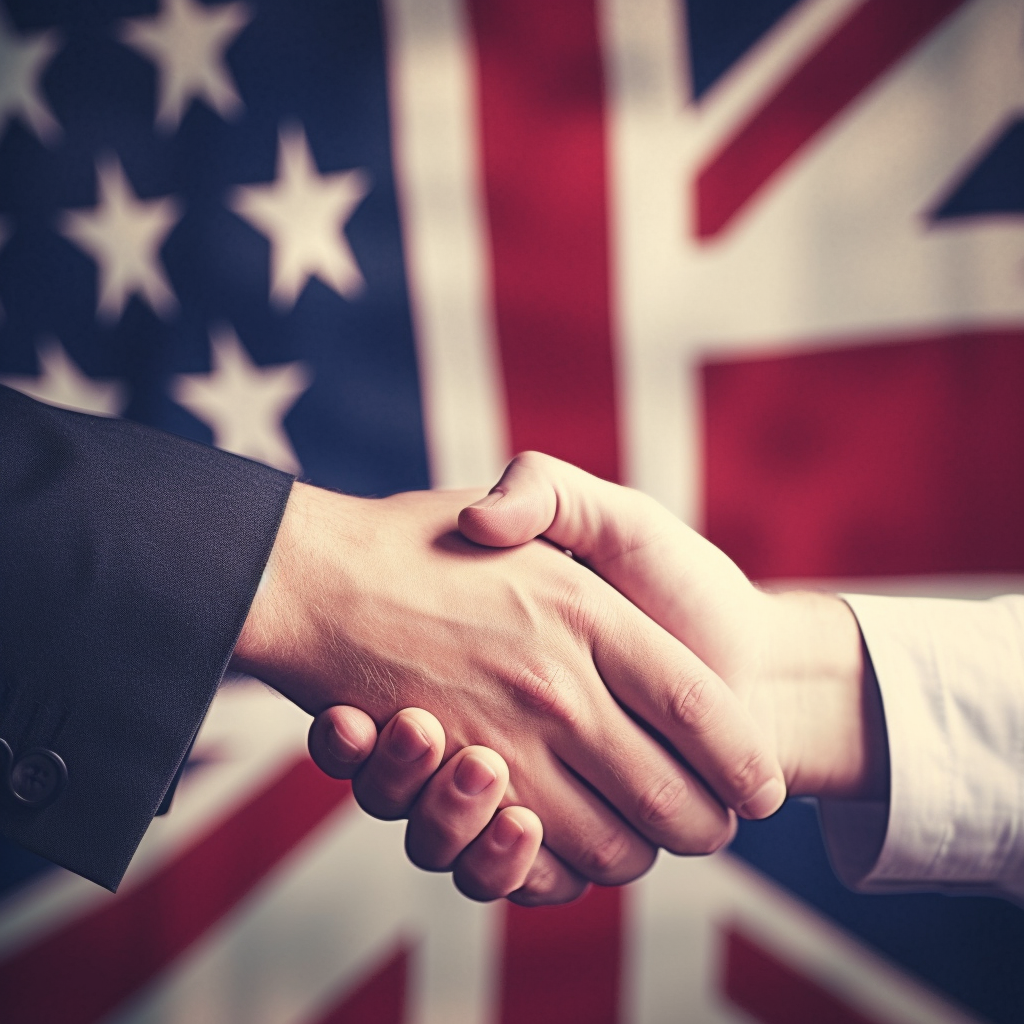The U.S. and the United Kingdom announced recently a “first of its kind” partnership that will address “the full spectrum of [their] economic, technological, commercial, and trade relations.” The Atlantic Declaration for a Twenty-First Century U.S.-UK Economic Partnership seeks to further deepen the bilateral trade and investment relationship; build resilient, diversified, and secure supply chains; reduce strategic dependencies; and provide for ever-closer cooperation on economic security and technology protection issues.
The partnership is not the bilateral free trade agreement British leaders have said they wanted after London left the European Union, but Prime Minister Rishi Sunak said it will nevertheless make it “far easier” for UK businesses to trade and do business in the U.S. Sunak also said the partnership is structured to “respond to the particular opportunities and challenges that we face right now and into the future,” echoing a common talking point from the White House about why the Biden administration has shifted its trade policy focus away from the FTAs and tariff liberalization.
According to a joint fact sheet, the partnership envisions a number of “concrete and coordinated actions” the two sides will take on a wide range of issues, including economic security, supply chains, and technology protection. For example, the two sides intend to update and more closely align their “toolkits” to prevent the leakage of sensitive and dual-use emerging technologies and other export-controlled commodities and technologies. Specific efforts in this area will include:
– flexible and coordinated export controls (which could include targeting end-uses of concern and addressing intangible transfers);
– continuing to coordinate work on sanctions evasion and jointly targeting those facilitating Russia’s war against Ukraine, including those who help Russia acquire goods and technology that support that war; and
– reducing the vulnerability of critical technology supply chains to geopolitical incidents, natural disasters, third-country policies, economic coercion, and other possible shocks, including by sharing analysis and deepening channels for coordination and consultation during disruptions and crises.
The two sides said they also intend to immediately begin negotiations on a targeted agreement that would allow cobalt, graphite, lithium, manganese, and nickel (the minerals “most important for electric vehicles”) that are extracted or processed in the UK to count toward sourcing requirements for clean vehicles eligible for the Section 30D clean vehicle tax credit of the Inflation Reduction Act. The U.S. has previously concluded a similar agreement with Japan and announced plans to negotiate one with the European Union as well.
Other efforts under the new partnership to lower trade barriers and bolster economic security include (1) establishing a U.S.-UK Data Bridge to facilitate two-way data flows while ensuring strong and effective privacy protections, (2) launching a one-year Joint Clean Energy Supply Chain Action Plan, which among other things will include “rapid stress-test exercises across key clean energy supply chains” that “could form a model for future work on supply chain resilience;” (3) collaborating on controls on outbound investments in sensitive technologies with a core national security nexus; and (4) ensuring U.S.-UK leadership in critical and emerging technologies, which include semiconductors, quantum technologies, artificial intelligence, cutting-edge telecommunications, and synthetic biology.
